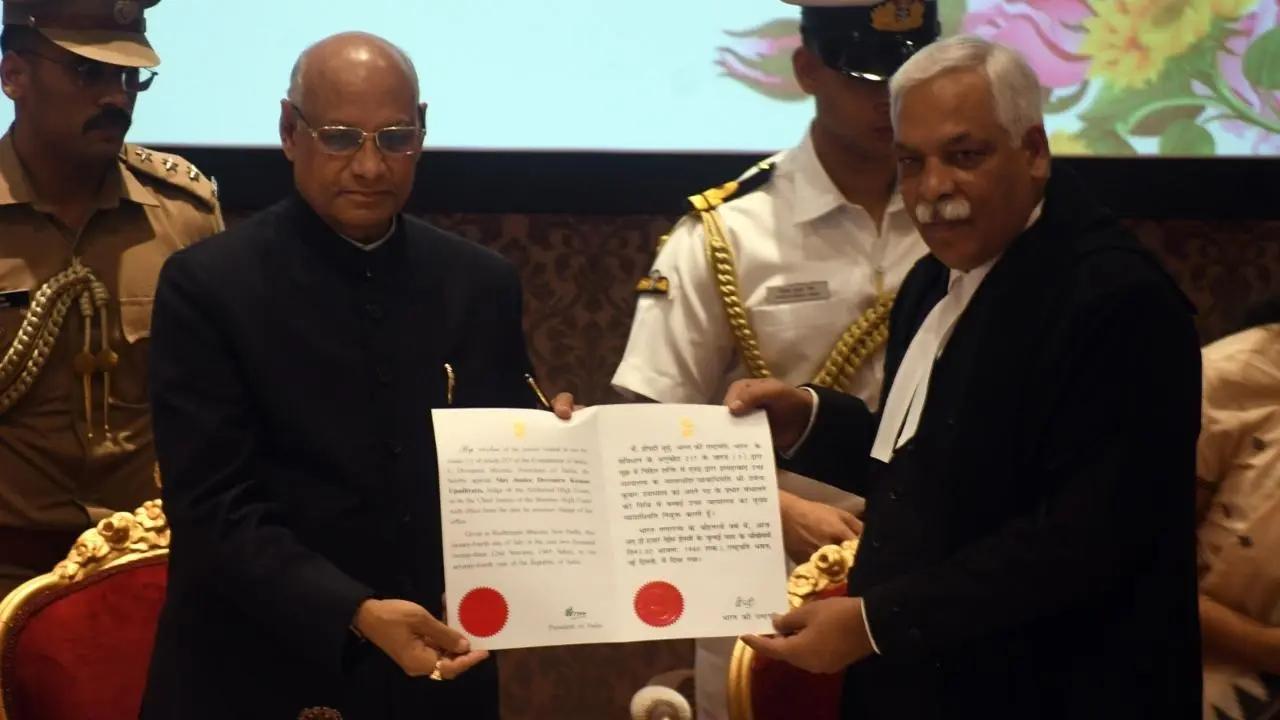Three new criminal laws--Bharatiya Nyaya Sanhita, Bharatiya Nagarik Suraksha Sanhita & Bharatiya Sakshya Adhiniyam--replaced IPC, CrPC & Evidence Act.

Bombay HC CJ Devendra Kumar Upadhyaya with Guv Bais/ Ashish Raje
Bombay High Court Chief Justice Devendra Kumar Upadhyaya said it is necessary to adopt new criminal laws with a fresh perspective, acknowledging the natural desire to oppose change. He urged individuals in charge of administering justice to embrace their obligations under the new legislative framework, which came into effect on July 1, reported PTI.
Speaking at a Ministry of Law and Justice event titled 'India's Progressive Path in the Administration of Criminal Justice System', CJ Upadhyaya emphasised the importance of the successful execution of the new criminal laws. He stated, "It is our natural tendency to resist change or we loathe to come out of our comfort zone. It is a fear of the unknown that causes this resistance and engulfs our rationale."
Three new criminal laws, the Bharatiya Nyaya Sanhita, the Bharatiya Nagarik Suraksha Sanhita, and the Bharatiya Sakshya Adhiniyam, replaced the British-era Indian Penal Code, Code of Criminal Procedure, and Indian Evidence Act, respectively, on Monday, bringing significant changes to India's criminal justice system, the PTI report stated.
"We have been dealing with the criminal justice system with the old laws for more than a century. The new enactments/law will bring with it some challenges but we have to welcome them with a changed mindset and come out of our comfort zones so that its implementation can be ensured," CJ Upadhyaya stated per the PTI report at the event held on June 30.
The program aimed to raise awareness and facilitate discussions among stakeholders about the new criminal law. CJ Upadhyaya stressed the importance of collaboration among all stakeholders for successful implementation.
"The new criminal laws aim to curb judicial delays and usher in a robust use of information technology. Teething trouble is bound to happen as in any transition from one era to another. We are in a transition phase. After today (June 30), we will be having a new regime of criminal laws that will require a lot of preparedness on behalf of all stakeholders,' CJ Upadhyaya said at the event.
Union Minister of State for Law and Justice Arjun Ram Meghwal emphasised the transformative potential of the new criminal laws. "The new criminal laws are aimed at providing justice, in contrast to colonial legislations where the focus was on 'punishment'," Meghwal told PTI.
He stated that the formulation of these laws involved extensive consultations with various stakeholders, including MPs, MLAs, ordinary citizens, and the Law Commission of India, to ensure that the legislation reflects diverse perspectives and addresses current challenges in administering criminal justice.
 Subscribe today by clicking the link and stay updated with the latest news!" Click here!
Subscribe today by clicking the link and stay updated with the latest news!" Click here!










